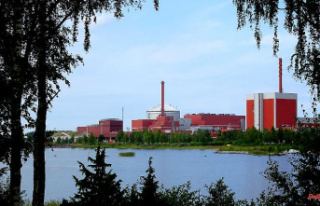With the strongest interest rate hike since the introduction of euro cash, the ECB braced itself against the escalating price surge last week. According to Bundesbank boss Nagel, if the inflation picture stays that way, that's not all.
Bundesbank President Joachim Nagel is calling for further sharp hikes in interest rates in the fight against the sustained surge in inflation following the ECB's most recent jumbo interest rate hike. There are signs that inflation is now affecting many areas of the economy, Nagel said on Deutschlandfunk. Therefore, it is now important to take action on the part of monetary policy. The move by the European Central Bank (ECB) on Thursday was a clear sign.
"And as I said, if the inflation picture stays the same, further clear steps must follow," he said. "Also in the near future, of course." Further interest rate increases for the next few months are necessary. "The inflation rate is far too high," said Nagel. Monetary policy is trying to ensure that it does not eat into all areas of the economy more and more. Interest rates would therefore have to be raised. "And that's going to continue for a while."
The inflation rate in the euro area climbed to a new record of 9.1 percent in August. This is more than four times higher than the ECB's inflation target of two percent. According to European measurements, inflation in Germany was 8.8 percent in August. The ECB braced itself against the escalating price surge on Thursday with the sharpest interest rate hike since the introduction of euro cash. It raised interest rates by an extraordinarily strong 0.75 percentage points. This was the second rate hike in a row. In July, the euro central bank initiated the turnaround in interest rates and raised key rates for the first time since 2011. The next ECB interest rate meeting is on October 27th.
Nagel expects inflation to continue to rise for the time being. He confirmed earlier forecasts for Germany from a newspaper interview. "We are currently seeing the peak in December possibly here at over ten percent," he said. In 2023, inflation will probably weaken somewhat. "Nevertheless, the inflation rate in the coming year is likely to be far too high at over six percent."
The Bundesbank President expects the economy to cool down. He did not rule out a recession. "Currently there are some indications that we may see very flat growth rates in the third or fourth quarter of this year - possibly also a declining economic development," he said.
This picture could continue in 2023. "It is possible to bridge a dry spell." However, the decline is not expected to be that strong. He does not see any pressure on monetary policy to stop raising interest rates in the wake of an economic slowdown. In the end, stable prices are much more important for medium-term, long-term growth and a good economic outlook for the euro area.
Some economists paint a bleak economic outlook for Germany, the largest economy in the euro area, as a result of the energy crisis. The President of the German Institute for Economic Research (DIW), Marcel Fratzscher, expects a phase of economic weakness and inflation that will last for years. "We expect the economy to shrink for 2023 as a whole, and 2024 will not be such a good year either," he told the editorial network Germany.












